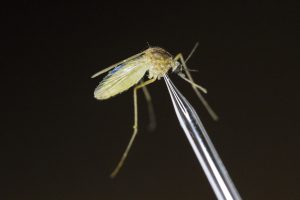There always appears to be one person in every group that mosquitoes seem to flock. If you are that person, you know the frustration. While scientists do not fully understand why some people are mosquito magnets, increased knowledge of their preferences can help prevent bites and the spread of mosquito-borne diseases.
Despite their tiny size, mosquitoes are the deadliest animal on Earth, claiming more lives than any other creature. They transmit diseases like dengue, yellow fever, Zika, malaria, and West Nile virus (WNV). West Nile virus is the most common mosquito-borne illness in the United States, with an average of 2,400 reported cases annually. Globally, malaria remains the leading cause of preventable death, with nearly 250 million cases and over 600,000 fatalities reported in 2022. Approximately 40% of the world’s population is at risk.
So what attracts mosquitos to certain individuals?
Several factors influence mosquito attraction. One study found that mosquitoes prefer the O blood type, but they do not avoid or dislike other blood types. Beyond blood type, characteristics such as odor, skin composition, body heat, and carbon dioxide play significant roles. Mosquitos are highly sensitive and drawn to specific chemicals in sweat – lactic acid, ammonia, and uric acid – which are influenced by diet, hygiene, health, and genetics. High levels of carboxylic acid, a fatty acid found in the skin, are also associated with attractiveness.
Those who exhale more carbon dioxide – namely, larger individuals – are more likely to be targeted by mosquitoes. They love the carbon dioxide aroma and can detect it from nearly half a football field away. Additionally, mosquitoes use thermoreceptors, heat-sensing organs, to detect changes in temperatures; they are attracted to higher temperatures, often targeting the extremities, head, and neck. Pregnant people are particularly attractive to mosquitoes due to their slightly elevated body temperature and hormone-related chemical changes in body odor. Furthermore, mosquitoes tend to prefer dark colors like black and navy – something to consider when getting ready during the hot summer months.
Understanding these factors can help individuals take steps to reduce their attractiveness to mosquitoes and protect themselves from serious diseases. Click for more information about mosquito repellents.
Sources:
Centers for Disease Control and Prevention (CDC)
National Institutes of Health
Hartford HealthCare
Our Blood Institute
An Equal Opportunity Institution.
- The Deal with Debt: Personal Finance Series (Part 5) - November 21, 2025
- A Practical Guide to Credit: Personal Finance Series (Part 4) - November 21, 2025
- Today’s Risk for Tomorrow: Personal Finance Series (Part 3) - October 24, 2025

